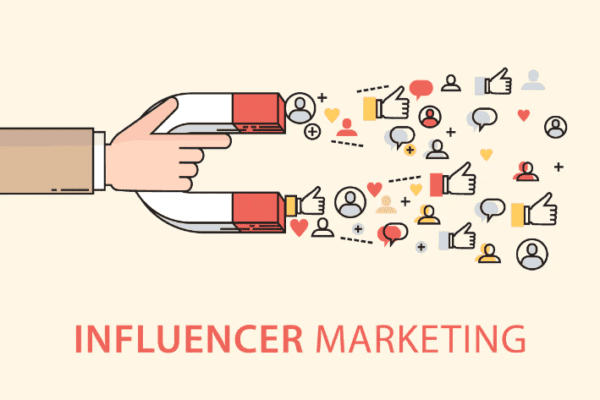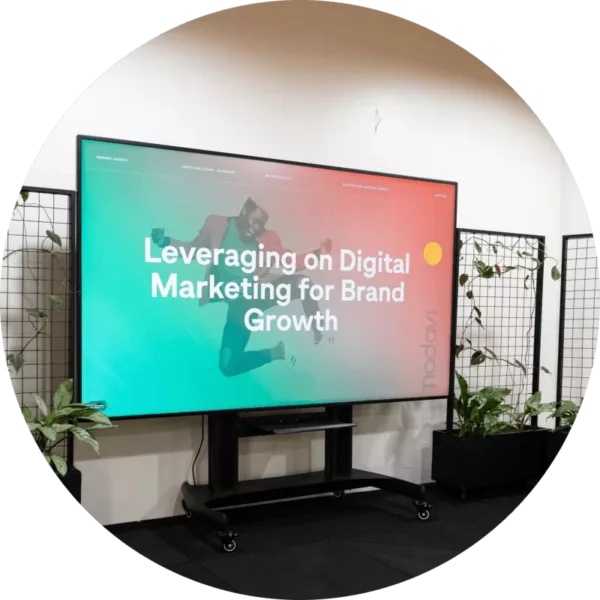Table of Contents
Content marketing has become a critical component of any successful marketing strategy. It involves creating and sharing valuable, relevant, consistent content to attract and retain a clearly defined audience. In today’s digital age, content marketing has become more critical than ever, and businesses must keep up with the latest trends to remain competitive.
One trend that has emerged in recent years is using video content as part of a content marketing strategy. With the rise of platforms like YouTube and TikTok, video has become an increasingly popular way for businesses to engage with their audience. Creating short, engaging videos that provide value to your audience can help you stand out in a crowded market and build a loyal following.
Another is interactive content, such as quizzes, polls, and surveys. Interactive content can be fun and engaging to get your audience involved in your brand and help you gather valuable data about your target market. By creating interactive content that is both entertaining and informative, you can build a stronger connection with your audience and increase the likelihood of them becoming loyal customers.

The Evolution of Content Marketing
Content marketing has come a long way since its inception. From traditional print ads to digital media, the evolution of content marketing has been significant. Here are some of the major milestones in the development of content marketing:
Print Ads
Print ads were the earliest forms of content marketing. They appeared in newspapers, magazines, and billboards. Companies use print ads to promote their products and services to a broader audience.
Radio and TV Ads
Radio and TV ads became popular in the 1920s and 1930s. Companies used jingles, slogans, and celebrity endorsements to attract customers. Radio and TV ads allowed companies to reach a wider audience and create a more memorable impression.

Digital Marketing
The rise of the internet in the 1990s paved the way for digital marketing. Companies started creating websites, email campaigns, and online ads to reach their target audience. Digital marketing allows companies to target specific demographics and track their results more effectively.
Social Media
Social media became popular in the 2000s, and companies started using it as a platform for content marketing. Social media allows companies to engage with customers and create a more personal connection. Companies use social media to promote their products and services and create brand awareness and loyalty.

Content Marketing Today
Today, content marketing is more important than ever. Companies are using a variety of formats, including blogs, videos, infographics, and podcasts, to reach their target audience. Content marketing is not just about promoting products and services; it’s about creating valuable content that engages and informs your audience.

The evolution of content marketing has been significant. Companies have come a long way in reaching their target audience, from print ads to digital media. Today, content marketing is more important than ever, and companies are using a variety of formats to create valuable content that engages and informs their audience.
Current Trends in Content Marketing
As a content marketer, it’s essential to stay up-to-date with the latest trends in the industry. Here are some of the current trends in content marketing that you should be aware of:

Personalization
Personalization is no longer just a buzzword in content marketing. With the rise of AI and data analytics, personalizing content for each user is easier than ever. You can increase engagement and drive conversions by tailoring your content to your target audience’s needs and interests.
To personalize your content, you can use a variety of techniques, such as:
- Dynamic range that changes based on user behaviour
- Personalized email campaigns
- Customized landing pages
- Targeted social media ads
Artificial Intelligence
Artificial intelligence is transforming content marketing in several ways. AI-powered tools can help you analyze data, automate repetitive tasks, and generate content. Here are some examples of how AI is being used in content marketing:
- Chatbots that can answer customer questions and provide personalized recommendations
- Content creation tools that use natural language processing to generate articles and blog posts
- AI-powered analytics tools that can identify patterns and trends in user behaviour

Voice Search Optimization
With the growing popularity of voice assistants like Siri, Alexa, and Google Assistant, voice search optimization is becoming increasingly important for content marketers. Here are some tips for optimizing your content for voice search:
- Use natural language and a conversational tone in your content
- Focus on long-tail keywords that people are likely to use in voice search
- Make sure your website is optimized for mobile devices
- Provide concise, direct answers to common questions
By staying on top of these trends, you can ensure that your content marketing strategy remains practical and relevant in the future.
The Impact of Social Media on Content Marketing
Social media has revolutionized the way businesses approach content marketing. With the rise of social media platforms, companies can reach their target audience more effectively than ever. In this section, we’ll explore the impact of social media on content marketing, focusing on influencer marketing and live streaming.
Influencer Marketing
Influencer marketing has become integral to content marketing strategies in recent years. By partnering with influencers, businesses can tap into their followers’ trust and credibility, reaching a wider audience and building brand awareness. Influencer marketing is particularly effective on social media platforms, where influencers have a large and engaged following.
Businesses must choose the right influencers for their brand to make the most of influencer marketing. This means finding influencers whose values and interests align with the brand’s and whose followers match the brand’s target audience. It’s also essential to ensure influencers disclose sponsored content to maintain transparency and build trust with their followers.

Live Streaming
Live streaming has emerged as a powerful tool for content marketing on social media. By broadcasting live videos, businesses can engage with their audience in real time, building a sense of community and fostering deeper connections with their followers. Live streaming is particularly effective for product launches, Q&A sessions, and behind-the-scenes glimpses into the brand’s operations.
Businesses must plan their broadcasts carefully to make the most of live streaming. This means choosing the right platform for their audience, promoting the broadcast in advance, and ensuring the content is engaging and relevant to their followers. It’s also essential to interact with viewers during the broadcast, answering questions and responding to comments to build a sense of community.
Social media has profoundly impacted content marketing, offering businesses new opportunities to connect with their audience and build brand awareness. By leveraging influencer marketing and live streaming, businesses can create engaging and compelling content that resonates with their followers.

Content Marketing and SEO
Regarding content marketing, search engine optimization (SEO) is crucial in driving traffic to your website. By optimizing your content for search engines, you can increase your visibility and attract more potential customers. Here are two essential aspects of SEO that you should consider when creating your content marketing strategy:
Keyword Research
Keyword research is the process of identifying the words and phrases that your target audience is searching for. Using these keywords in your content can improve your search engine rankings and attract more traffic to your website. Several tools are available to help you conduct keyword research, including Google Keyword Planner and SEMrush.
When conducting keyword research, it’s essential to focus on long-tail keywords – phrases that are more specific and less competitive than broad keywords. For example, instead of targeting “shoes,” you might target the long-tail keyword “women’s running shoes.”

Link Building
Link building is acquiring links from other websites to your own. This can help improve your search engine rankings and drive more traffic to your website. However, focusing on quality over quantity regarding link building is essential. A few high-quality links from reputable websites can be more valuable than many low-quality links from spammy websites.
One effective way to build links is to create high-quality content that other websites will want to link to. This might include blog posts, infographics, or videos. You can also reach out to other website owners and offer a guest post on their site in exchange for a link back to your site.
By incorporating keyword research and link building into your content marketing strategy, you can improve your search engine rankings and attract more traffic to your website.
The Role of Analytics in Content Marketing
As content marketing continues to evolve, so does the importance of analytics. Analytics provide valuable insights into how your content performs, what your audience engages with, and how you can improve your strategy. Here are two sub-sections that highlight the role of analytics in content marketing.

Data-Driven Decisions
Analytics allow you to make data-driven decisions regarding your content marketing strategy. By analyzing data on your audience’s behaviour, you can make informed decisions about what content to create, what channels to use, and when to publish. This can help you optimize your content for maximum engagement and ROI.
One way to use analytics for data-driven decisions is to track your content’s performance over time. You can identify trends and patterns that inform your strategy by monitoring metrics such as page views, time on page, and bounce rate. For example, if your blog posts get more engagement on certain days of the week, you might adjust your publishing schedule accordingly.

Predictive Analytics
Predictive analytics takes data-driven decision-making to the next level by using machine learning algorithms to forecast future outcomes. By analyzing historical data, predictive analytics can help you anticipate how your audience will respond to different types of content, which can inform your strategy.
One way to use predictive analytics in content marketing is to identify patterns in your audience’s behaviour. For example, if your audience is more likely to engage with video content than written content, you might prioritize video in your content strategy. Predictive analytics can also help you identify new opportunities for content creation based on emerging trends and patterns.
Analytics play a critical role in content marketing by providing valuable insights into your audience’s behaviour and preferences. You can optimize your content strategy for maximum engagement and ROI using data-driven decision-making and predictive analytics.
Future Predictions for Content Marketing
As content marketing continues to evolve, a few trends will likely shape its future. Here are some predictions for what we can expect in the coming years:
Augmented Reality
Augmented reality (AR) is a technology that allows users to overlay digital content onto the real world. This technology has already been used in advertising to create interactive customer experiences, and we can expect to see more of it in the future. AR can be used to create immersive content that engages users in a way that traditional advertising cannot. For example, a furniture company could use AR to allow customers to see how a piece of furniture would look in their home before they make a purchase.
Virtual Reality
Virtual reality (VR) is another technology that will likely significantly impact content marketing in the future. VR allows users to enter a completely immersive digital environment, which advertising has already used to create interactive experiences. We can expect to see more brands using VR to produce engaging content. For example, a car company could create a VR experience that allows users to take a virtual test drive of their latest model.
Both AR and VR have the potential to revolutionize content marketing by creating immersive experiences that engage users in a way that traditional advertising cannot. As these technologies evolve, we can expect more brands to incorporate them into their marketing strategies.

Conclusion
In conclusion, content marketing is constantly evolving, and keeping up with the latest trends is crucial for success. Creating high-quality, engaging content that resonates with your target audience can build brand awareness, drive traffic to your website, and ultimately increase conversions.
Some of the key trends in content marketing include the use of video content, interactive content, and personalized content. It’s also important to focus on mobile optimization, as more and more people are accessing content on their smartphones and tablets.
To stay ahead of the curve, it’s essential to continually analyze your content marketing efforts and adjust your strategy as needed. You ensure that your content is always fresh, relevant, and effective. by visiting up-to-date with the latest trends and best practices.
Remember, content marketing is not a one-time effort but a continuous process. By consistently delivering value to your audience through your content, you can establish yourself as a thought leader in your industry and build a loyal following of customers and advocates.







